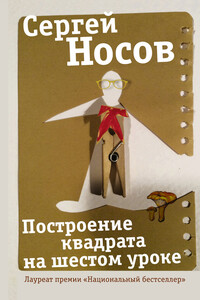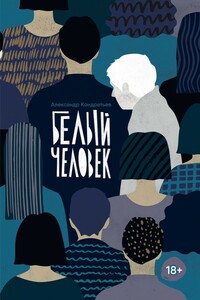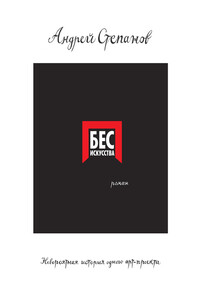36 Arguments for the Existence of God - [42]
“Gauss wasn’t a Gump.”
“Coulda been. But Goethe? No way a Gump.”
“I don’t know how you can be so sure.”
“Here’s how: literature works the whole soul, and mathematics doesn’t. It’s as easy as that. That’s why Gauss could be a prodigy at two, before he’d even acquired a self.”
The need to acquire a self had been a sustained theme in the thought of Jonas Elijah Klapper, surviving every paradox shift. All of Klapper’s students understood that education is a desperate business, psychopoiesis, the making of the soul of which they would have been otherwise bereft. Psychopoiesis requires that one be in the right place at the right time, one of the hot spots, occasionally located at our better universities, where the overhang is porous, and scraps from the higher conversation rain down. Thus we acquire an education; thus the species lurches on.
There were of course the exceptions, upon whom Jonas thought much, but of whom he seldom spoke: potential progenitors of a greatness that made mere genius seem jejune. Goethe, for example, had settled for genius, announcing to the world that, although he had been present at the creation, he would not lay claim to the final knowledge of the world, a revelation that had provided the subtext of Jonas’s first work, Goethedämmerung.
The sad truth was that almost nobody had a self. None of Professor Klapper’s students were certain they had one, not even Gideon Raven. The only people they were certain had selves were the writers whom Professor Klapper assigned them to read, and even here there was room for debate. And then, of course, there was Jonas Elijah Klapper himself.
“Gauss wasn’t a full-fledged mathematician at two. He wasn’t creating mathematics yet, just demonstrating the enormous capacity for doing so. There’s creative genius in mathematics, too.”
“I don’t dispute the existence of mathematical genius.”
Cass laughed.
“Why are you laughing?”
“It just struck me as funny, I couldn’t really say why.”
“Could be the beer laughing, Baby Budd,” Gideon had replied good-naturedly.
“‘We do not prove the existence of the poem,’” Cass had quoted from Wallace Stevens.
“Not bad, Baby Budd. Not bad at all.” Gideon lifted the near-empty pitcher in a toast.
There was a large and raucous group of graduate-student types at the next table, with a lot of punning going on, mostly around philosophers’ names, to judge from the comments that got lifted airborne and floated over to where Gideon and Cass were sitting.
“When my mistake was pointed out to me, I felt like a complete buber,” they heard, followed by shouts of laughter. And: “It’s buried so deep we’ll have to use a heidegger.” And: “He went into a bertrand and began to babble about the class of all classes that aren’t members of themselves.” There were more, judging from the shouts of laughter, but those were the ones that Cass had caught.
One of the punsters got up to get another pitcher and, on his way to the bar, paused and greeted Cass and Gideon.
“You probably don’t recognize me, right?”
“Who could recognize anybody in this light?” Gideon had returned pleasantly.
“Yeah. You know, I once saw Jed over there”-the kid indicated the bartender with a backward toss of his head-“outside, in so-called natural light, and it was scary. Anyway, I’m Jordan Block. I’m a grad student in philosophy. I was in that Klapper seminar the first day, and I think I recognize you two. You guys were there, right?”
“Yeah.”
“Sure.”
“Did you ever hope in your wildest dreams to witness such a farce? The whole scene was out of Monty Python. That bit when he went into his trance and intoned, ‘Wovon man nicht sprechen kann, darüber muss man schweigen,’ and then, in the same breath, lumped it with the Private Language Argument, with no inkling that there’s a distinction between early and later Wittgenstein. What about ‘wovon man nicht knows the first fucking thing, darüber muss man schweigen?’ I was almost tempted to come back the next week just to hear the hash he was going to make out of Aristotle. You think anyone showed up?”
Cass glanced at Gideon, who was listening to Jordan with an insouciant smile. He shrugged at the question, and then added an affable “Your guess is as good as mine.”
Jordan laughed. “Yeah, I recognized you.” He nodded at Cass. “You were the one he started shrieking bloody murder at because he didn’t like what you said about a poem. What a douche bag. Well, see you around.”
“Yeah,” Gideon returned with his imperturbable smile, which was removed as soon as Jordan left them.
“That’s typical.”
“Is it?”
“Of course. Jonas gets that all the time from the so-called philosophers. He’s the only one who’s doing real philosophy these days, ever since the logical positivists set out to hunt down and exterminate any genuine philosophical insights. These are the guys who run around calling out ‘meaningless’ wherever they find something difficult and profound. It’s like skeet shooters shouting ‘pull.’ If they can’t bag it in some trivial empirical test, they blast it out of the skies with ‘meaningless.’ Look, according to these guys, even Nietzsche isn’t a real philosopher, and that-to use one of their own favorite ploys-is a

Я был примерным студентом, хорошим парнем из благополучной московской семьи. Плыл по течению в надежде на счастливое будущее, пока в один миг все не перевернулось с ног на голову. На пути к счастью мне пришлось отказаться от привычных взглядов и забыть давно вбитые в голову правила. Ведь, как известно, настоящее чувство не может быть загнано в рамки. Но, начав жить не по общепринятым нормам, я понял, как судьба поступает с теми, кто позволил себе стать свободным. Моя история о Москве, о любви, об искусстве и немного обо всех нас.

Сергей Носов – прозаик, драматург, автор шести романов, нескольких книг рассказов и эссе, а также оригинальных работ по психологии памятников; лауреат премии «Национальный бестселлер» (за роман «Фигурные скобки») и финалист «Большой книги» («Франсуаза, или Путь к леднику»). Новая книга «Построение квадрата на шестом уроке» приглашает взглянуть на нашу жизнь с четырех неожиданных сторон и узнать, почему опасно ночевать на комаровской даче Ахматовой, где купался Керенский, что происходит в голове шестиклассника Ромы и зачем автор этой книги залез на Александровскую колонну…

В городе появляется новое лицо: загадочный белый человек. Пейл Арсин — альбинос. Люди относятся к нему настороженно. Его появление совпадает с убийством девочки. В Приюте уже много лет не происходило ничего подобного, и Пейлу нужно убедить целый город, что цвет волос и кожи не делает человека преступником. Роман «Белый человек» — история о толерантности, отношении к меньшинствам и социальной справедливости. Категорически не рекомендуется впечатлительным читателям и любителям счастливых финалов.

Кто продал искромсанный холст за три миллиона фунтов? Кто использовал мертвых зайцев и живых койотов в качестве материала для своих перформансов? Кто нарушил покой жителей уральского города, устроив у них под окнами новую культурную столицу России? Не знаете? Послушайте, да вы вообще ничего не знаете о современном искусстве! Эта книга даст вам возможность ликвидировать столь досадный пробел. Титанические аферы, шизофренические проекты, картины ада, а также блестящая лекция о том, куда же за сто лет приплыл пароход современности, – в сатирической дьяволиаде, написанной очень серьезным профессором-филологом. А началось все с того, что ясным мартовским утром 2009 года в тихий город Прыжовск прибыл голубоглазый галерист Кондрат Евсеевич Синькин, а за ним потянулись и лучшие силы актуального искусства.

